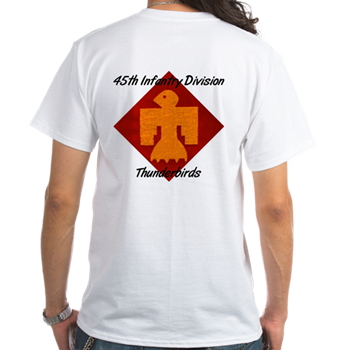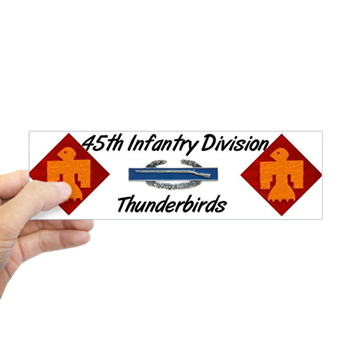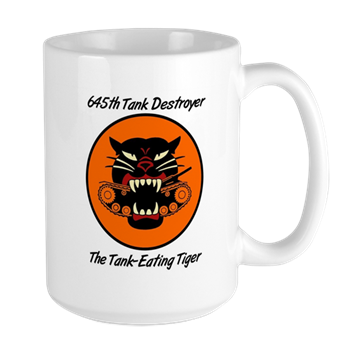Leonard L. Neely |



Leonard L. Neely 179th Infantry RegimentThe time: September 16, 1940.The place: National Guard Armory at Altus, Oklahoma.My first day of Army life had just begun. I was told to report to the quatermaster to draw clothes. Now I wear size twelve shoes and the largest he had was size nine, so the result was I wore my civilian shoes. He threw a pair of pants at me, and when I looked at them I wondered if the Army anticipated a flood. They were twenty-nine inches in length and my legs were thirty-five inches. Consequently, six inches of space prevailed between the bottom of my pants and the shoe tops of my white civilian shoes. I told the sergeant either my legs were too long or my pants were too short. He informed me with an unusual amount of sarcasm that in his 19 years in the Army he had seen only two sizes--too large or too small. My shirt turned out to be too large, so I tried to get my shirt and pants both of the too small size. But luck was not with me. I was so mad I could have shot the sergeant, but as yet I was a soldier with out a gun. My conviction was confirmed when he threw at me an old campaign hat that had seen too many wars. It had been soaked in sugar and water to restore its original stiffness. But it became too stiff and every time it was bent it would break. It, too, was of the too-small size, so I had to use my chin strap to keep the Oklahoma wind from carrying it off to the South. I left the quartermaster, my spirits ebbing low, only to cross the drill floor to be informed by the sergeant of the guard that I was to go on guard at 10 o'clock. When I told him I did not have a rifle, he informed me in no uncertain terms that I could draw one from the quatermaster. " The god damned quatermaster again!" I thought to myself. "Instead of going to the quatermaster, I should be going to the doctor to have my brain examined for volunteering for this damn outfit anyway," I thought. But it was too late, so I went on and drew my rifle. Cosmoline covered it, and I only had one hour to get it clean before going on guard. I appeared ready for guard at the correct time, the major part of Cosmoline still on my rifle. Two o'clock came much too soon. My luck, as it was, still failed me, for I was given the post walking up and down the highway in front of the Armory, parading in my too-small pants and hat and too-large shirt with white shoes and dirty rifle. To complicate the situation, my parents came out to see me. I was reluctant to see them in this ill-fitting uniform. But I was relieved from guard for fifteen minutes to visit with them. As they started to leave, my father said, "You look nice in your uniform, son." It was the first and last time I ever had reason to doubt my father's word. I finished my daylight hours in mortal fear that my girl would come to see me also, but she didn't, and that was the only good luck I had that first day in the Army. The Time: January until May of 1944The Place: Anzio beachheadFor four months our home was a foxhole on the Anzio beachhead. From January until the end of May we were sweating out everything that old Jerry had, plus all the bad weather that falls in southern Italy. In this period we lived in what we called a foxhole. It was only a hole in the sandy loam that made up the soil of Anzio. To the G.I.'s that lived there it meant a place that gave us shelter from the tools of war. Two men dwelled in a hole about six feet long, four feet deep, and three feet wide. The walls bore the marks of the pick and shovel that had turned the earth into a home. The top was made from poles or steel beams with sand bags on top of them. This was to keep the shells that burst overhead from coming in on us, and also it was a little help in keeping the falling weather from making life more miserable. When it was raining, the little rivulets of water came twisting and winding their way down the dirt walls. After we had been on Anzio for a few days, the ground was so water-soaked that the seeping water kept the walls wet all the time. It was not a new sight to see a G.I. dipping the water from his home with his helmet. The shelter half or the raincoat was used to cover the door. To get the water running in at the door was just one of our troubles. We cussed the weather and also we cussed the Jerries. We thought that to live in a hole was very uncomfortable, but it would have been much worse if it had not been for good old mother earth. The foxhole was the kitchen, bedroom, and in many cases the bathroom. To get in a foxhole was like going down into a musty old well. Cigarette butts were mashed into the walls and had turned yellow from the moisture of the ground. After a few days the hole had the foul odor of wet cigarette butts.
The Time: High noon, mid-summer 1944The Place: Southern Italy The
whistle blows for chow, and all the G.I.'s rush for the kitchen area to form that
famous chow line. Everyone cusses the chow hound because he is in front, but each
one is trying to beat him there. The chow line is formed only by G.I.'s, but off
to the side there are more hungry looking faces - faces that look more hungry
than the G.I.'s.
These people are dressed in rags. Their clothes look as though they won't stay on until they get out of the area. Their bodies are thin and frail looking. Their faces have the look of hungry dogs who are tormented with bowls of food just beyond the reach of their chains. Each one of these characters has from one to two dirty pails in his hands. We call these people Dagos, but the real name for them is starved Italians. Their ages range from those of babes in arms to grandmothers and grandfathers.
The Time: September 1, 1944The Place: Southern FranceI.September 1, 1944, was a critical day for the third platoon. We were parked on the outskirts of a small town in Southern France. The Lieutenant and I were looking for a place to pull our trucks where they could be dispersed far apart. At ten A.M. it began to rain. "Hey, Snazz, here is a messenger from Regiment who wants to see you and the Lieutenant." We returned to our jeep, and there was the messenger waiting for us. The message read, "Meet me at the first road junction across the Rhone River," signed by the Regimental Commander. We knew that our first platoon was in trouble or he wouldn't have sent us a message like that. Little did I know that my number would be up that day.
II. Soon we were out of town and a serious look came to every face. As we came to the river, we saw an M.P. motion for us to pull up and stop. He said, "Keep one-hundred-yard intervals and drive slowly over the pontoon bridge." The word was passed back to all the trucks. Our little jeep led the column. The trucks now seemed to be more like cars in a funeral procession. All the boys were very tense. As we drove slowly over the rubber and steel bridge, I couldn't keep from noticing the ripple of cool running water under us. It brought back memories of the creek back in Oklahoma where I used to spend the greater part of my summer vacation. After we crossed the bridge, we drove about one quarter of a mile. Then we met the guide who was to take us to the Regimental Commander. The transportation corporal dispersed the trucks and kept the men ready to move any minute. The guide took us into the "Old Man's" C.P. The Colonel told us we had a very dangerous mission and he hoped we could fill it. He said, "Pagen White is getting hell knocked out of them by Mark IV and Mark VI tanks, and they have lost all their anti-tank guns." We knew then we had a dangerous mission. He took the map and showed us the roads he wanted blocked. We had two different roads to block. This meant splitting the platoon in half. It was decided that I would take two guns and go up the road to the front of us, and the Lieutenant would take the other two and swing to the left flank. I went back to the trucks and called all the men from the first and second squads together and told them all the information I had received. I told the gunners to stay on the machine guns at all times until we were set up in position.
III. All of a sudden my helmet spun off my head and the ground came up to meet me. There was no pain, but I was numb all over and seemed to have no control over myself. The blood started spurting from the left side of my head and then I began to scream for a medic. I knew there was no medic near, but just the same I kept hollering. I heard one of my gun sergeants yell back at me and say, "Take it easy, Neely. I'm coming after you." I seemed to feel better then, but I also seemed to be fading into space unknown. As I was going into this unknown space, my thoughts raced homeward. I could see my wife standing there just as she was the morning we said goodbye two years ago. I was praying that people would be good to her, for I felt like I was losing her. I guess from there I went into that unknown space, for the next thing I heard was the sergeant saying, "I can't come, for I'm hit too." I slipped back into the space, I don't know for just how long. When I regained my senses, I could hear tanks very close to me, and I knew they were not ours. I then realized that I had gotten in the middle of the road, and those huge monsters were fixing to run over my already torn body. Just through self-preservation I started rolling toward the ditch. At this time all hell broke loose from the tanks. Tracer ammunition was going over and on both sides of me. It was hitting me too, but I didn't know it then. I was saying to myself, "Roy, this is the end of your rope." Yes, I was praying, praying for my wife, praying for my folks. I reached the ditch, amazed that I was still alive. All these last few seconds seemed like hours. The desire to get even with the ones who had hurt me took possession of me. I reached for my pistol that was on my hip, and then I realized that my right arm was all but severed at the elbow. IV. I could hear guns firing from every direction, and here I was in the middle of it all and couldn't do anything. The large tanks were trying to knock out my guns and the boys were trying to bump the Jerries off that were on top of the tanks. The anti-tank guns were never in position to fire at the tanks. I was being tossed around in the ditch like a rubber ball every time the big guns from the tanks fired. They were about thirty yards behind me firing directly over me. At this point the American artillery had picked up the tanks and were trying to register on them. The smell of burning powder was so thick I could taste it. The whole world seemed to be running away from me. I was trying to surrender to the Germans, but they paid no heed to me. They rolled by me in their tanks so close that I could touch them if I tried. The blood streaming from almost every German on the tanks told me that the boys had been scoring some hits too.
V. There I stumbled into a mesh wire fence and could not get through. I slid down by the fence and there I gave up the struggle. It had been raining all this time and my clothes were soaked in blood and water. I didn't know just where all I was hit. I was just waiting for that time that I knew was coming. I was still trying to attract the attention of the French that I knew were in the house, but finally I was too weak to call out any more. I knew that I must let fresh blood run through my arm and that meant to loosen the tourniquet. I did this only to find that I was too weak to put it back on. I was at the point where I was not afraid any more. As I lay there, I relived my life. Everything that I had ever done or said went before my eyes. I was talking to myself, trying to give belief that this was not the end. I lay there for three hours not knowing what was going on anywhere only in my mind. It was raining, but that felt good to me.
|
last revision